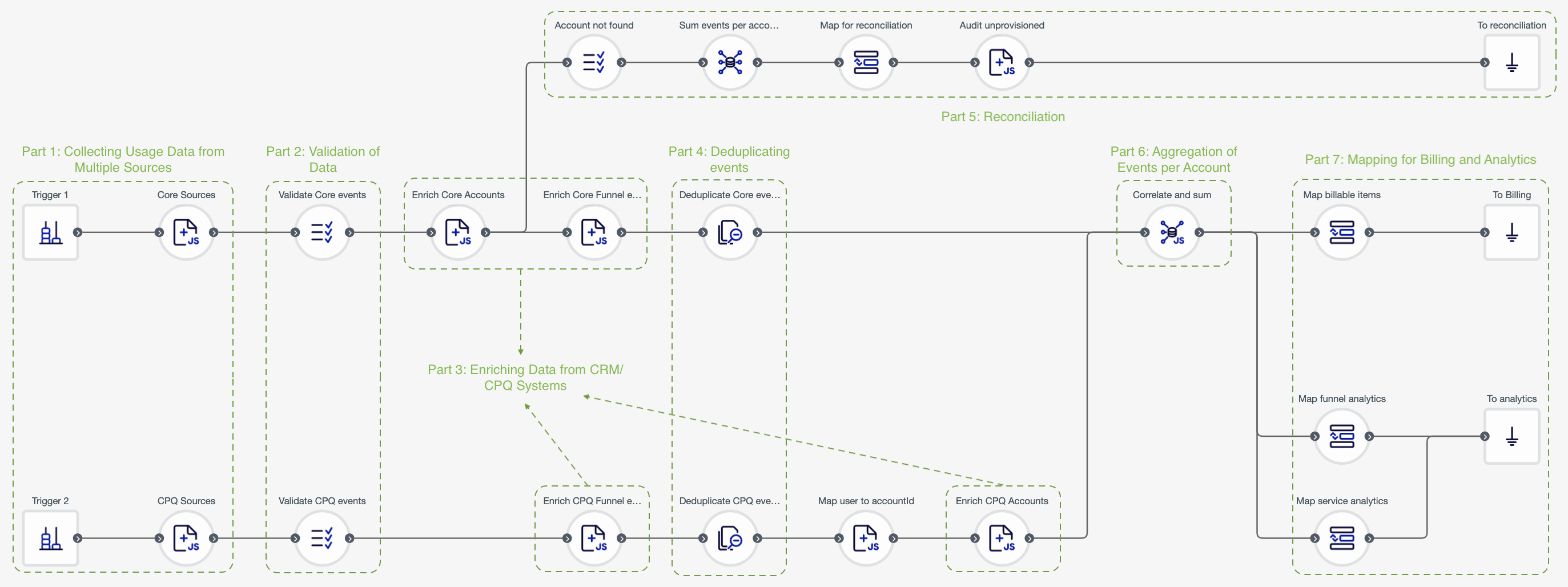...
Analytics: Breakdown of usage by funnel event type and by microservice ID.
Data sync reconciliation: Providing alerts about accounts generating events that don’t exist in the CRM and therefore cannot be processed correctly. This also generates custom audit events.
Stream Breakdown and Functions Used
Part 1: Collecting Usage Data from Multiple Sources
- Trigger 1 & Trigger 2 (Count): Triggers the stream to run as many times as specified in the configuration.
- Core Sources & CPQ Sources (Script): Collecting customer lifecycle journey events or funnel events
Part 2: Validation of Data
- Validate Core events & CPQ events (Validate): Validating the data and filtering out invalid records
Part 3: Enriching Data from CRM/CPQ Systems
- Enrich Core Accounts & CPQ Accounts, Enrich Core Funnel events & CPQ Funnel events (Script): Enrich the simulated data from Core & CPQ systems
Part 4: Deduplicating events
- Deduplicate Core & CPQ events (Deduplicate): Removing duplicated records received from Core & CPQ systems
Part 5: Reconciliation
- Account not found (Validate): Detecting incoming records that don't have an account ID registered in our CRM
- Sum events per account (Data Aggregatoraggregator): Aggregating the events for unprovisioned accounts
- Map for reconciliation (Field Organizer): Formatting and renaming data fields for reconciliation
- Audit unprovisioned (Script): Generating a custom audit event for unprovisioned accounts
- To reconciliation (No Operationoperation): Pushing data for reconciliation
Part 6: Aggregation of Events per Account
- Correlate and sum (Script Aggregatoraggregator): Aggregate the total number of events per account, but also differentiated by event type and source service ID
Part 7: Mapping for Billing & Analytics
- Map billable items (Field Organizer): Formatting and renaming aggregated data for billing
- Map funnel analytics (Field Organizer): Formatting and renaming aggregated funnel event(s) data for analytics
- Map service analytics (Field Organizer): Formatting and renaming aggregated service data for analytics
- To Billing (No Operationoperation): Pushing data to billing systems
- To analytics (No Operationoperation): Pushing data to analytics
